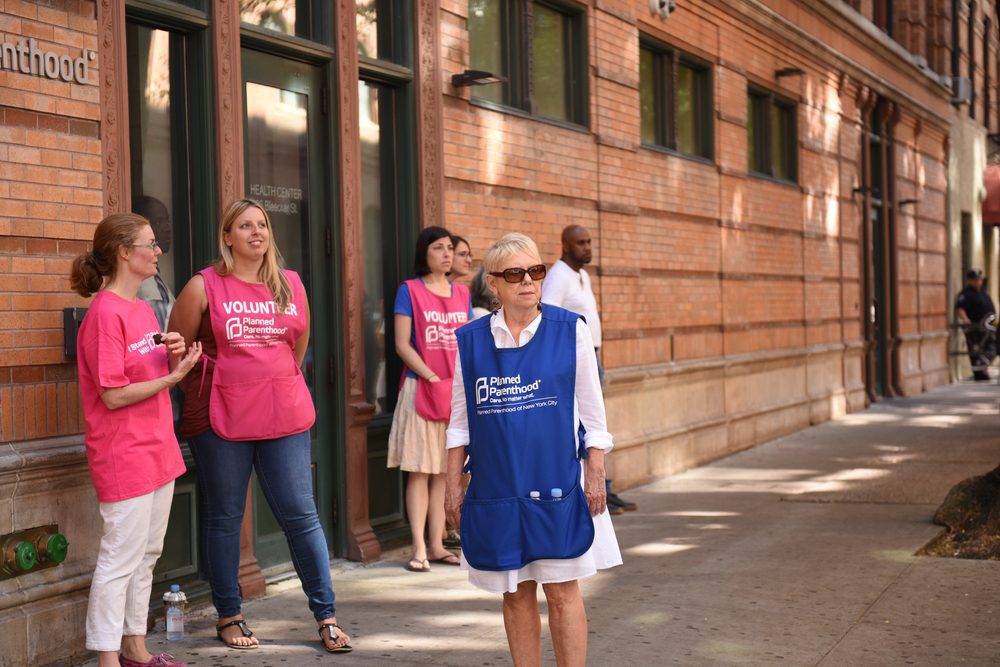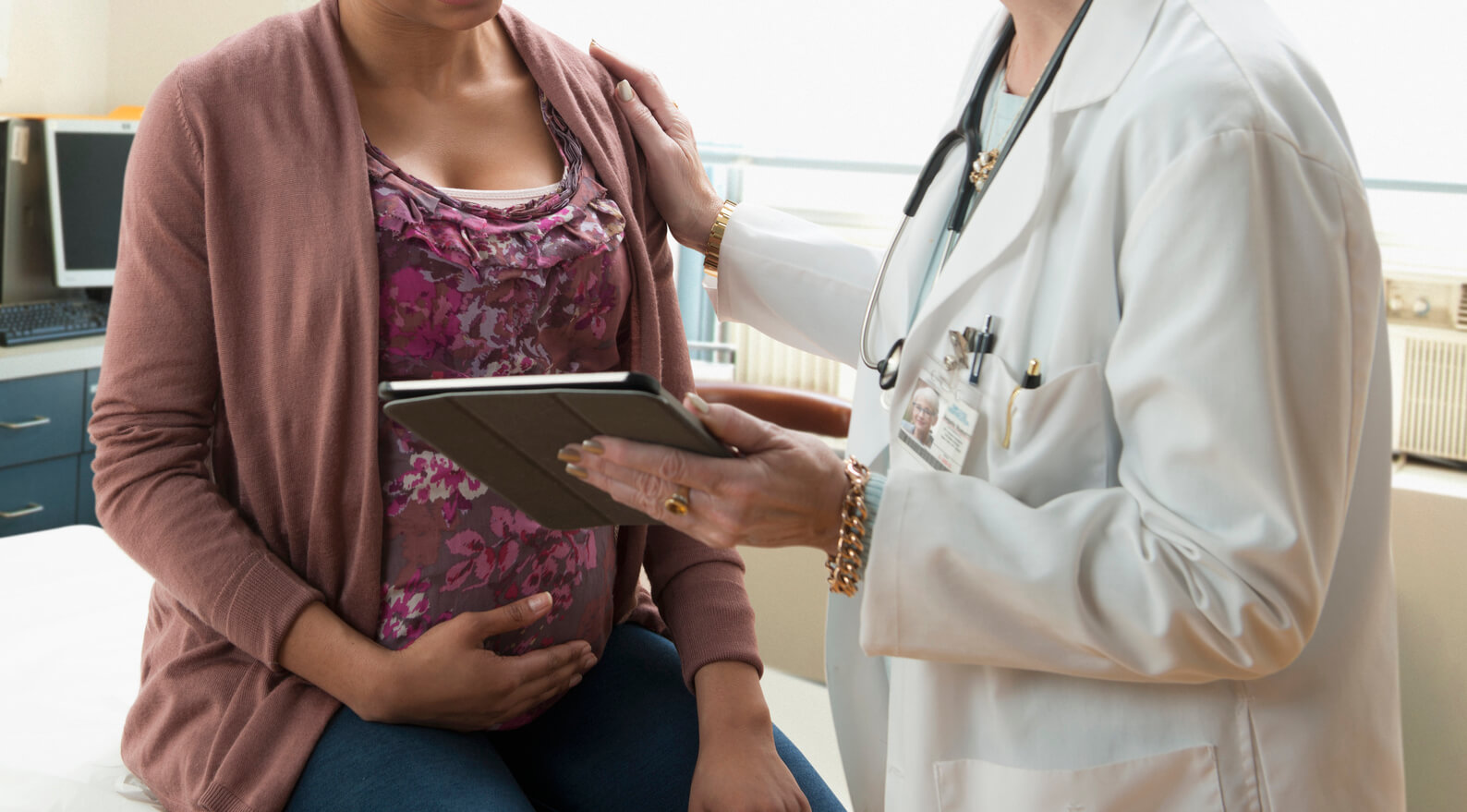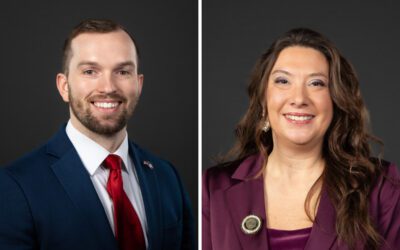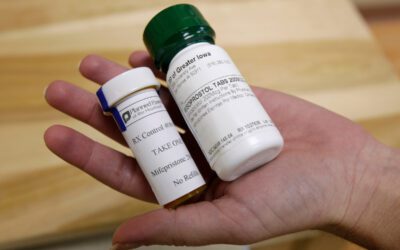
An abortion rights activist holding a protest sign with No Laws Exist to Control Men's Bodies is written on it. (Photo by Probal Rashid/LightRocket via Getty Images)
There are different types of people who seek abortions. Here is the story of one of those women—the everyday woman who accidentally got pregnant.
Seven years ago, Madeleine McCormick was a senior in college in Storm Lake. She was studying digital media at Buena Vista University and was incredibly proud of the work she was doing on issues facing the local LGBTQ+ community, immigration, and police brutality.
“Social justice is really important to me,” McCormick said. “When I was a senior in college and working on all of these projects that I was really proud of, I got pregnant.”
She was still dating her high school boyfriend. And when he found out, he told her, “We can’t have this baby.” And she agreed. Their relationship was already uncertain. A baby would stall their future.
She and her boyfriend made the decision to have an abortion.
“There is not a Planned Parenthood in Storm Lake, so I went to the hospital, to the emergency room,” McCormick said. There a doctor confirmed her pregnancy and recommended she start taking a prenatal vitamin.
“It was shocking to me that there was never really even a moment in that space in which they just paused and considered how I was feeling.”
McCormick turned to the Planned Parenthood in Ames where she said the treatment differed from the Storm Lake ER: She was simply a woman who needed health care.

Madeleine McCormick
McCormick gave a urine sample, got an ultrasound. The staff screened for STIs and in follow-up, even helped her get an IUD.
Since she was only six weeks along, McCormick opted for a medication abortion. She liked the idea of being able to do it in the safety and comfort of her own home, surrounded by those who supported her.
A medication abortion is a prescription drug combo that can be taken up to 11 weeks after the first day of a woman’s last period to end a pregnancy. One pill blocks progesterone—the hormone that supports a pregnancy. The other causes cramping that empties the uterus. It’s safer than penicillin and Viagra.
McCormick acknowledged that her story isn’t tragic or filled with adversity. It’s simply a story about a woman who needed medical care and got it. But, she said, that’s why her story is so important. There are different types of people who seek abortions, and she represents one of them—the everyday woman who accidentally got pregnant.
“When we think about abortion stigma, a lot of that seems to be surrounding marginalized communities or underserved communities,” McCormick said. “I am not a person that has faced extraordinary circumstances. I come from a privileged background. Abortion care is for everyone.”
Abortion by the numbers
In 2023, Iowa reported 2,771 abortions, according to the Iowa Department of Public Health. A majority of those, 60%, were obtained by white women. Twenty-three percent were obtained by Black women, and 3% by Asian women.
While data on income is limited, studies suggest poor women and women of color have higher abortion rates than richer women and white women. That’s likely because women from poorer backgrounds and women who face systemic racism have a more difficult time getting health care in general—while also balancing fewer resources for transportation, childcare, time off from work, and family support.
After a near-total abortion ban went into effect in Iowa in July 2024, abortions reported in the state decreased by almost 40%.
The state of abortion
Iowa’s near-total ban was passed in a special session in 2023, following the 2022 US Supreme Court case Dobbs v. Jackson, which overturned Roe v. Wade. In the special session, the Iowa Supreme Court ruled that Iowa’s Constitution contains no right to abortion—opening the door to the ban.
READ MORE: Iowa’s near-total abortion ban takes effect
The ban prohibits abortions from the point when electrical impulses can be detected—which is so early in pregnancy that most people don’t even know they’re pregnant. Proponents of the ban have called this a “heartbeat,” despite no heart being present.
Iowa’s ban does have limited exceptions for rape, incest, and the life of the mother, but in practice, these exceptions in other states don’t work. What’s more, these kinds of limited exceptions make health care providers less likely to offer abortion care even when it would save the life of the mother, since it’s not entirely clear when that line has been crossed. This has had devastating effects across the country.
Since the near-total ban took effect in Iowa, Republican state lawmakers have introduced other bills to further limit what little abortion care Iowans can receive. One such bill, which did not make it out of committee, would have prohibited the manufacturing, distribution, prescription, dispensing, or sale of abortion drugs, like the ones McCormick used.
‘We’re a lot more alike than we are different’
It’s been nearly eight years since McCormick had her abortion.
“I am someone who has worked through years of abortion stigma in my own life, looking at myself in the mirror and living with my choices,” McCormick said, noting that she has regretted not doing more to prevent the situation in the first place. “I wasn’t always proud of it but I don’t think pride has anything to do with it. It’s just health care.”
McCormick said her hope for Iowa is that politicians and policies will stop governing who can have certain health care and who can’t. She also wants to see society smash through abortion stigma.
“I don’t live in lifelong shame. I don’t live in regret,” McCormick said. “I’m cisgendered, white, straight, and I come from privilege. I am just someone who needed health care. And I got it, thank God.
“I think we need to remind ourselves that we’re a lot more alike than we are different and we have a lot more power than we give ourselves credit for.”

More Iowans leave state for abortion care as demand for help surges
Since Iowa’s near-total abortion ban went into effect in July 2024, the number of residents seeking abortion care outside the state has surged...

House GOP fast-tracks budget bill that would cut off Medicaid funding to Planned Parenthood
The budget package proposes steep health care cuts—and includes a new push to block patients from accessing reproductive care. In a 30-24 party-line...

Report: Majority of pregnancy-related deaths in Iowa could have been prevented
A newly released report found that 95% of pregnancy-related deaths in Iowa were preventable, and those deaths disproportionately affected women who...

New Iowa bill would ban abortion pill, sparking backlash
Republican proposes bill to effectively end 74% of abortions in Iowa by banning a pill that’s safer than penicillin and Viagra. Seventy-four...

Way more Americans are getting sterilized since Roe was struck down, research finds
A new study has found that from May to August 2022, vasectomies surged by 95% and tubal sterilizations increased by 70% among adults ages 19 to 26....

People are leaving states with abortion bans, according to study
A new analysis from the National Bureau of Economic Research found that since 2022, states with near-total abortion bans appear to have lost 36,000...





